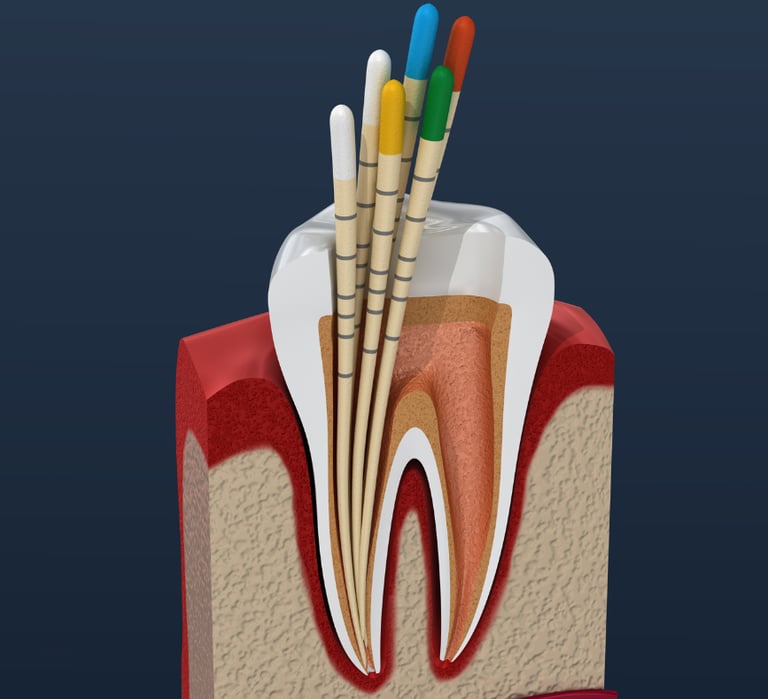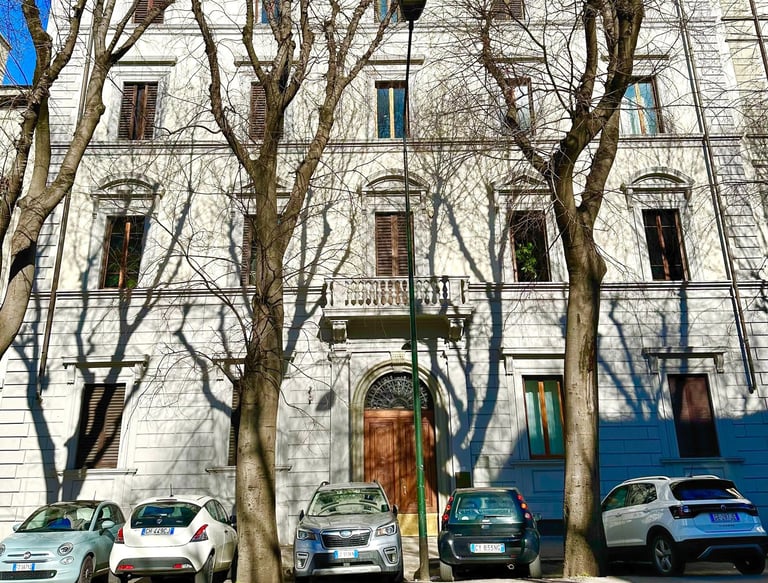

Or root canal therapy
Endodontic treatments, commonly known as root canal therapy, address diseases or injuries to the dental pulp (the nerve inside the tooth). The dental pulp is located in the root canal—the central part of the tooth—and contains nerves and blood vessels that nourish it.
When the pulp is injured or infected, it can die, leading to tooth sensitivity, pain, or a dental abscess. In some cases, the tooth may discolor, turning gray or even black. If untreated, the decomposing pulp causes infection, which can form an abscess.
An abscess may cause intense pain and swelling, and if neglected, it can destroy the supporting bone. In less acute cases, an abscess may lead to a fistula—a small passage through the bone and gum that drains the necrotic material into the oral cavity.
In all these cases, root canal therapy is necessary to save the tooth and prevent future infections.
Why is a root canal necessary?
Common causes of pulp disease or injury include:
Tooth decay
Deep or poorly executed fillings
Extensive dental restorations
Faulty crowns, bridges, or veneers
Dental trauma (such as a blow to the tooth)
Tooth fractures or cracks
Gum disease
If you experience any of these issues, scheduling a dental appointment is essential.
How does root canal therapy work?
Removal of infected pulp:
The dentist removes the diseased pulp, including tiny nerves and blood vessels inside the tooth.Cleaning and disinfection:
The inner surfaces of the tooth are thoroughly cleaned and disinfected.Filling the canals:
The cleaned canals are filled with a rubber-like dental material called gutta-percha to seal and prevent bacterial reinfection.Final restoration:
The tooth is sealed with a filling. In many cases, because a devitalized tooth is more fragile, placing a dental crown is recommended for added strength and long-term support.
Root canal therapy preserves your natural tooth
Root canal treatment can save teeth that would otherwise require extraction, restoring function, aesthetics, and comfort.
Warning signs
Tooth pain or hypersensitivity may indicate nerve necrosis. If you experience these symptoms, don’t delay—book an appointment to prevent further complications.
Endodontics


Gallery
Explore our clinic's journey and inspiring patient transformations.










I have never enjoyed going to the dentist so much! The whole team is warm and welcoming.
Speaking to Dr Ana Maria Castellani is like speaking to an old friend. She takes the time to explain everything very thoroughly and is calm and reassuring. Highly recommended.
Gillian C.


★★★★★
Opening hours
Contact
© 2025. All rights reserved.
Mon-Thurs
09:00 - 13:00
Mon-Thurs
14:00 - 18:00
Friday
Friday
09:00 - 13:00
14:00 - 16:00
Phone
Address
Viale Don Giovani Minzoni 39, Firenze, 50129
Studio Dott. ssa Anamaria Piha
P. IVA 07112340489
Codice Fiscale: PHINMR81M54Z129V
Opening hours
